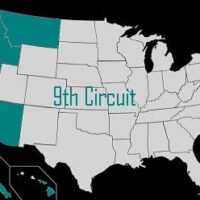UPDATE December 8, 2017 – The VA has issued VHA Policy Directive 2017-1315 stating, “Veterans must not be denied VHA services solely because they are participating in State-approved marijuana programs.” The directive, signed by Executive in Charge Carolyn M. Clancy, M.D., replaces VHA Directive 2011-004 which had the same language. The new directive is scheduled for recertification on or before the last working day of December 2022.
Like the old directive, the current one does not allow VA doctors to recommend medical cannabis, or for VA pharmacies to supply it.
A survey conducted by the American Legion in October 2017 revealed that 92% of veterans support research into medical cannabis and 83% of veteran households support legalizing medical cannabis. The survey also indicated that 22% of veterans are currently using cannabis to treat a medical condition with the the most prevalent conditions being chronic pain and PTSD. Veterans are twice as likely to succumb to accidental opioid overdose than non-veterans.
 July 19, 2010 – The Veterans Health Administration has made it known that it will allow use of medical marijuana by VA patients on opiod therapy. This is good news for the many chronic pain patients who have been told that they must give up marijuana in order to continue on RX pain medications. Private pain clinics have been wrongly stampeded into disallowing medical marijuana on the bogus grounds that it is against federal law. The fact that the VA officially allows it should help debunk these fears as groundless. Also see: Medical Marijuana In VA Clinics OK’d In States Where It’s Legal
July 19, 2010 – The Veterans Health Administration has made it known that it will allow use of medical marijuana by VA patients on opiod therapy. This is good news for the many chronic pain patients who have been told that they must give up marijuana in order to continue on RX pain medications. Private pain clinics have been wrongly stampeded into disallowing medical marijuana on the bogus grounds that it is against federal law. The fact that the VA officially allows it should help debunk these fears as groundless. Also see: Medical Marijuana In VA Clinics OK’d In States Where It’s Legal
UPDATE: In July 2014, the House failed to pass an amendment ensuring VA doctors have the right to discuss medical marijuana with their patients; as federal employees they cannot recommend cannabis treatment. In March 2014, the federal government approved research on medical marijuana use for PTSD; however, Dr. Sue Sisley, who was conducting the research has been fired from the University of Arizona.
VA doctors prohibited from prescribing medical pot
By SUE MAJOR HOLMES
The Associated Press
Wednesday, March 31, 2010; 4:10 AM
The Department of Veterans Affairs says it is developing a national policy, and the head of Veterans for Medical Marijuana Access believes a VA policy allowing medical marijuana “is inevitable.”
July 2, 2009 – The Veterans Administration will ignore marijuana drug screening for pain patients who have legal medical marijuana recommendations, under a new policy reported by VA Watchdog.
This is an important development, as NORML has received a flood of recent complaints from medical marijuana patients who have been denied treatment by pain clinics after testing positive for marijuana. Included have been MMJ patients who were receiving opiates from the same clinic for many years, but were suddenly drug tested and told that they must either give up MJ or lose their opiate prescriptions.
The upsurge in such incidents has been due to growing pressure on pain clinics to crack down on prescription opiate abuse and diversion by more intensive drug screening of patients. Although the opiate abuse problem has nothing to do with marijuana, and there is no legal requirement that clinics test for cannabinoids, many have been doing so anyway under the mistaken impression that they might be prosecuted for prescribing opiates to MMJ users. To our knowledge, not a single such prosecution has ever occurred.
On the contrary, recent studies show that cannabis is valuable for treating chronic pain, and in particular can be an effective adjunct to opiate therapy, reducing the need for opiates and other prescription drugs. There is accordingly no sound basis either medically or legally for denying treatment to chronic pain patients who test positive for medical marijuana. Hopefully, the new VA policy will help stem this perverse and misguided practice.
– D. Gieringer, Cal NORML
California NORML investigated reports from patients who were being drug-tested by their pain doctors, including attending The 2009 American Pain Society Convention in San Diego. In a report for the journal O’Shaughnessy’s, CaNORML concludes: “The prejudice against marijuana has nothing to do with medical science, but rather with political and legal pressures to crack down on prescription drug use.”


